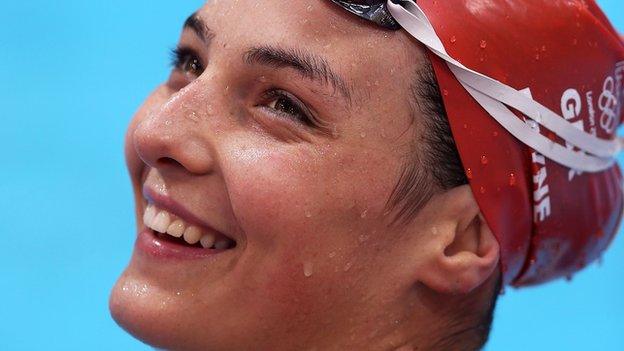Jellyfish and extreme chafing: The reality of open water swimming
- Published
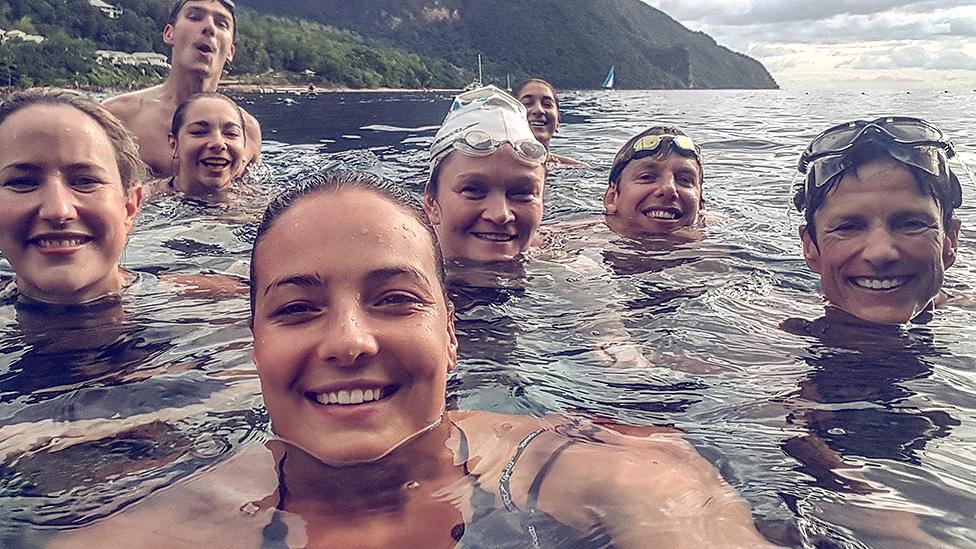
Most people would feel fairly worn out after an hour in the pool - but how about swimming for eight hours every single day, for six months?
That's exactly what Ben Lecomte is facing as he tries to swim the Pacific Ocean.
If he succeeds, he'll be the first person ever to complete the 9,000km swim.
It would be a massive achievement - and experienced long-distance open water swimmers are already in awe of his attempt.
Ben Lecomte sets off as he attempts to become the first person to swim the Pacific Ocean
"It's a mammoth task and I have full respect for him but he is going to be going through quite a lot of pain at some points during those six months," 23-year-old PhD student André Roberts tells Radio 1 Newsbeat.
André swam the channel in 2015, a 13-hour stroll-in-the-park compared to what Ben is attempting.
Ben, who's 51, is hoping to cross the Pacific to raise awareness of global warming while a team of scientists on a support boat conduct research on both him and the stretch of water.
But Ben will face a string of obstacles - physical, mental and fish-based - which will make his ocean crossing extremely difficult.
The chafing (and muscles) will need constant attention
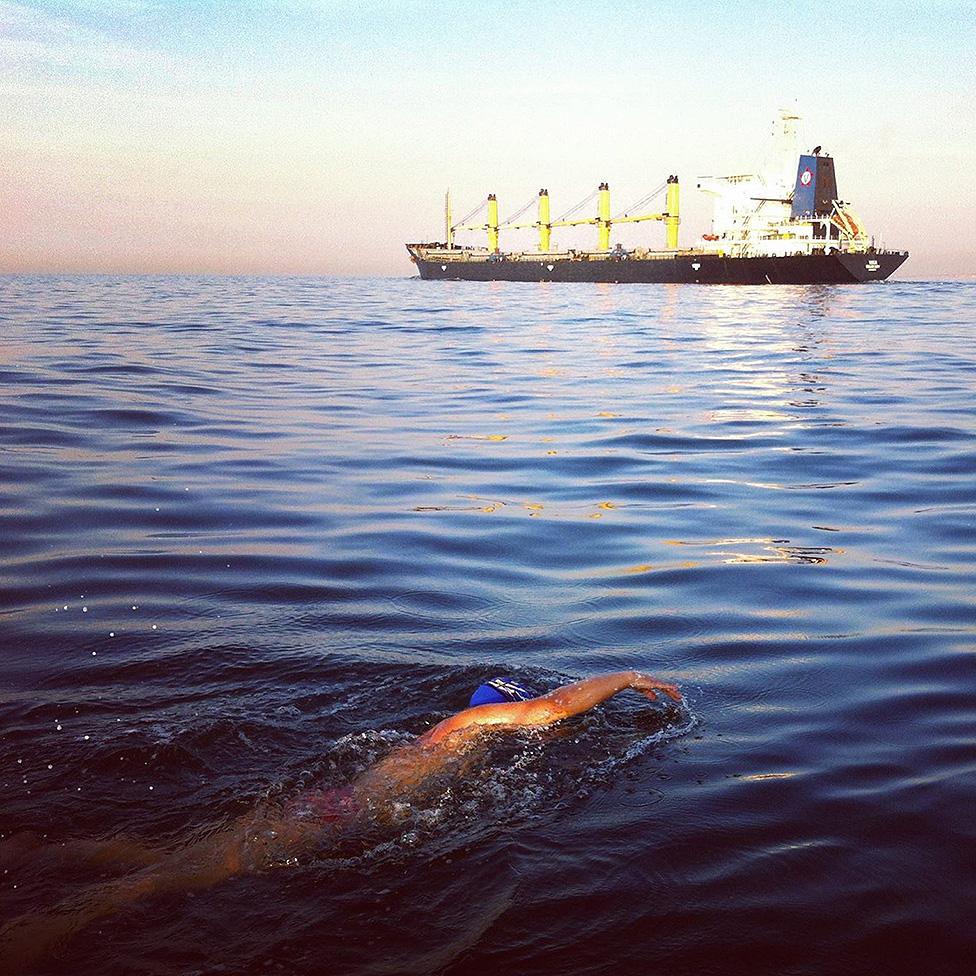
André swam the English Channel in 2015
"He's in a wetsuit so for starters you have the chafing," says André.
"There's going to be a lot of Vaseline needed because otherwise that's going to be really painful. He will be rubbing raw."
André says that after he swam the channel, he suffered extreme cramps for several days - meaning Ben's team will have to take special measures to take care of his physical health.
"His muscles are going to need continuous sports injury treatment because they're going to be so sore," he says.
Then there's the worry of what he'll bump into along the way.
There will be sea life that stings - or worse
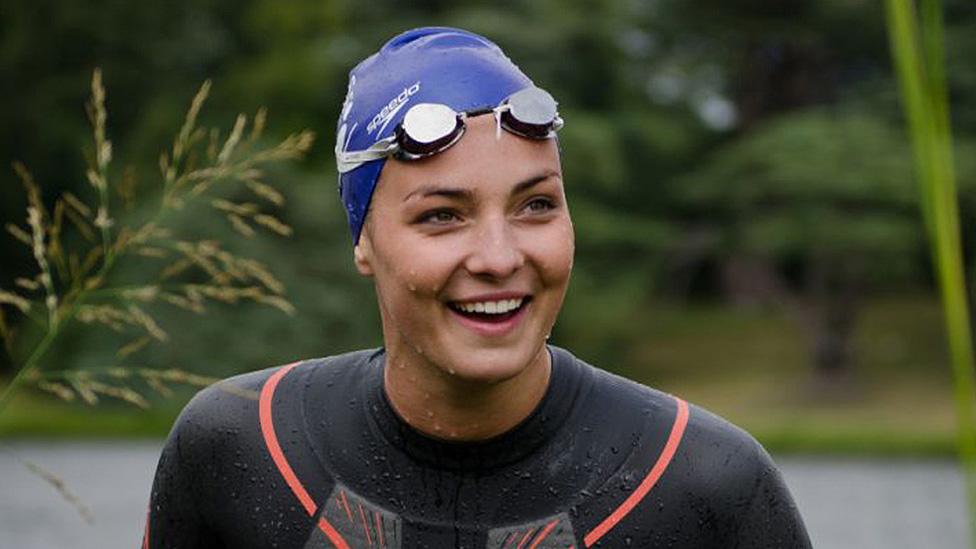
Keri-anne Payne says jellyfish are her "least favourite aquatic animals" and that their stings feel like stinging nettles
Keri-anne Payne is a former open water Olympic swimmer, having swum for the UK in competitive races of up to 10km.
On several occasions in her career, the 30-year-old had to share her swim with some unwelcome ocean guests.
"On my second ever 10km swim the amount of jellyfish was incredible," Keri-anne tells Newsbeat.
"There were about 2,000 jellyfish just hanging around, which was slightly concerning before we started the swim."
Keri-anne says she still has "a few little scars" from her jellyfish encounters in Australia and that every time she gets out in the open ocean by herself she thinks something is "on its way to get me".
"I know that's completely ridiculous - but in Ben's situation, it's probably not that ridiculous."
All that salt water isn't good for you
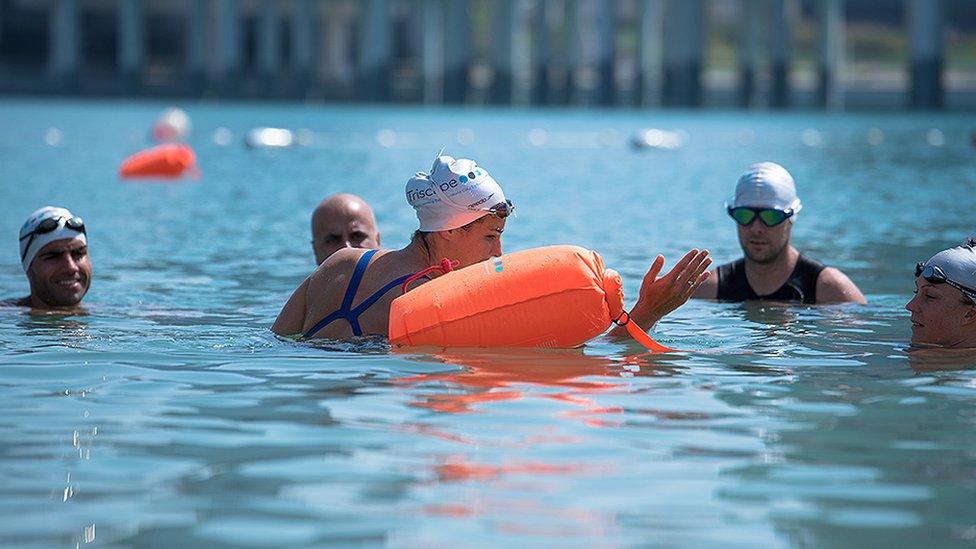
Keri-anne says open water swimming is also great for mental health and describes it as "moving meditation"
"If you imagine getting into the bath for a long period of time and getting wrinkly hands - when you add the salt into the equation it does the same thing to the inside of your mouth," says Keri-anne.
"It really dries everything out and makes your tongue swollen - and there's not really anything that can offset it."
But these won't be the biggest problems Ben will face as he attempts to cross the Pacific.
Both André and Keri-anne agree that the biggest strain of the swim will be the mental pressure.
What happens inside a swimmer's head is important
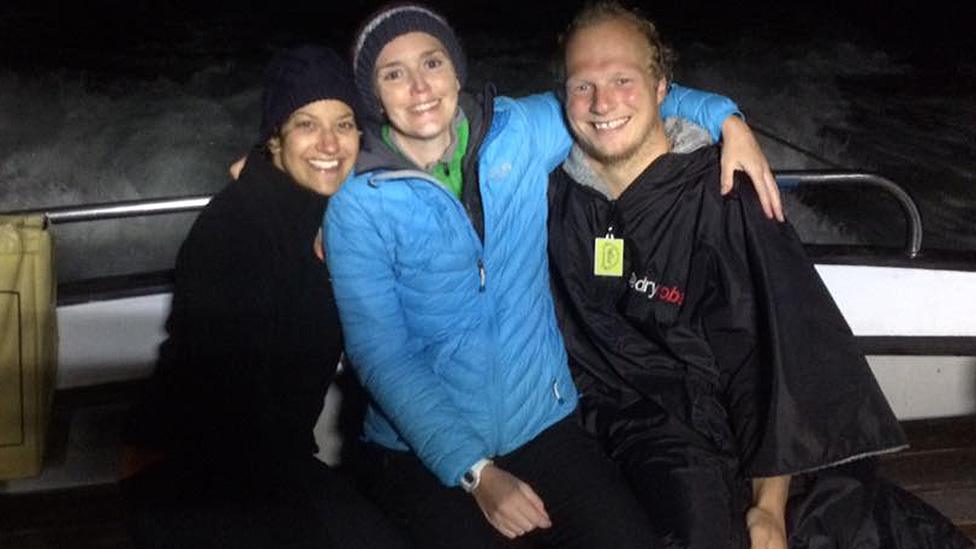
André (right) says he hopes to tackle Lake Geneva in the future, which is 73km long
André describes Ben's days swimming the Pacific as "eight hours of staring into a dark abyss".
Keri-anne says not stepping foot on land for six months will be a "gruelling" struggle.
"It's going to be relentless. There will be no time for him to recover," she says.
"That would be the thing that would potentially stop him before his body stops.
"If Ben can do it, what an amazing achievement. His mental strength will be absolutely solid if he can."
Follow Newsbeat on Instagram, external, Facebook, external and Twitter, external.
Listen to Newsbeat live at 12:45 and 17:45 every weekday on BBC Radio 1 and 1Xtra - if you miss us you can listen back here.
- Published5 June 2018
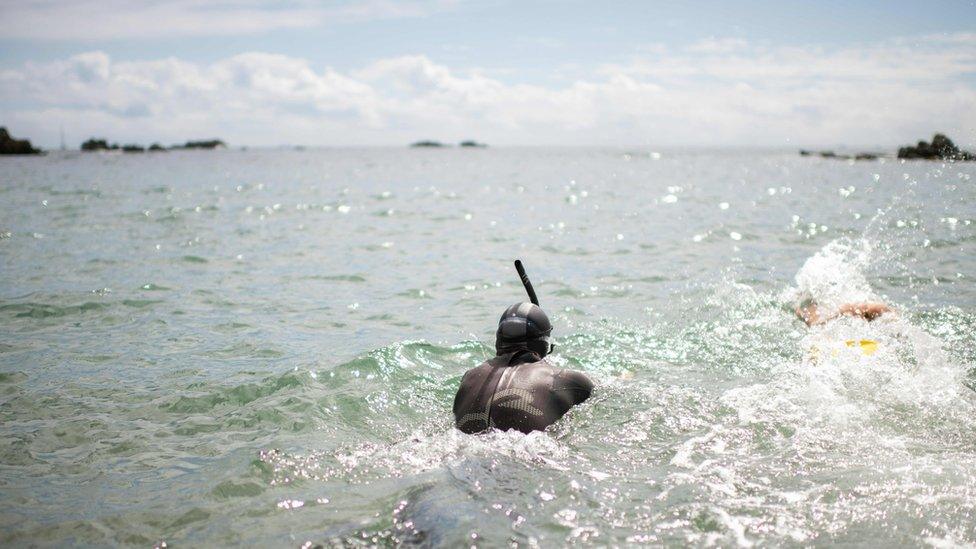
- Attribution
- Published23 January 2017
